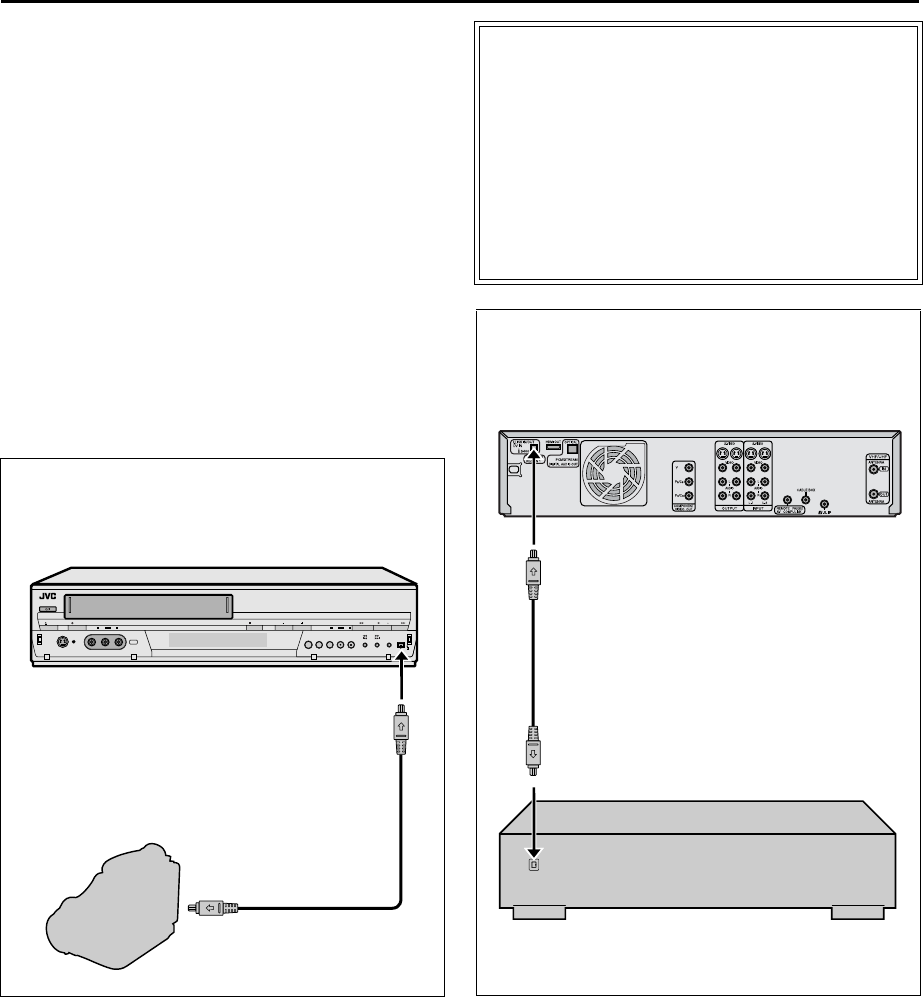
72 EN
EDITING
i.LINK/DV
Connections
NOTES:
• You cannot use the i.LINK connection depending on the type
of camcorder equipped with the DV connector. In this case,
set “LINC” to “OFF” (
A page 70).
• If the 44.1 kHz PCM audio signal is input via DV connector,
recording cannot be performed properly.
• During DV input, the image format output to the TV will be
480i even if “TV OUTPUT 2” is set to “ALLto480p” (
A page
65) or “480i to 480p” is set to “ON” (
A page 65). The status
(ON/OFF) of HDMI is also disregarded, however, if the HDMI
at the TV supports image format other than 480i, the HDMI
output will be muted. The menu settings and the HDMI status
will be retained and changes can be made.
If you are using a TV with DVI input, and it does not support
480i image format, use the TV’s analog input instead.
A You can use a camcorder as the playback device
and your VCR as the recording VCR.
This VCR (for recording)
To [i.LINK]
DV cable (not supplied)
To DV output
DV camcorder
(for playback)
This VCR supports the copy protection technologies of
DTLA (Digital Transmission Licensing Administrator).
These technologies are admitted by DTLA .
It is impossible to dub copy-limited signals between
the devices which supports copy protection
technologies of DTLA. It is impossible to dub to other
tapes the program which only one recording is
permitted.
When connecting to other devices, only the operation
of the devices which supports DTLA is guaranteed.
The operation of non-DTLA-supported devices is not
guaranteed.
B You can use your VCR as the playback or
recording VCR.
E.g. When using this VCR as the recording VCR
This VCR (for recording)
To [i.LINK IN/OUT]
i.LINK cable
(not supplied)
To [i.LINK IN/OUT] connector
Another VCR (for playback)


















